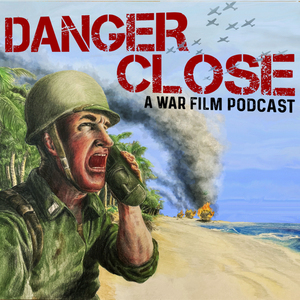Jack Johannessen
Secret Police Podcast - host
We mentioned Poland-Lithuania in episode 1 and 2 regarding their relationship with Moscow. I
won’t go in depth on Polish history but let’s at least go back to World War I. Poland reemerged
as a state after being partitioned between Germany, Austria, and the Russian Empire -- a triple
subjugation that existed since 1795.
We saw the USSR and Nazi Germany form a tenuous peace in the Molotov-Ribbontrov Pact in
Augist 1939. Both regimes invaded Poland -- the Nazis from the west and the Soviets from the
east, and if you’ve been following this show thus far, you know one secret police group is bad
enough. Poland had the rare and horrific experience of two secret police subjecting the Polish
people to their respective torment. Of course we are focusing on the NKVD today. The Gestapo
will have its own episode.
During the 1939 invasion, the Soviets advanced to a predetermined line, called the Curzon Line,
stipulated by the Molotov-Ribbentrop Pact. Curzon ran approximately on the San, Vistula, and
Narew rivers.
Remember, the NKVD practiced their techniques to cull non-Russians from annexed territories
in Finland around the same time, and they practiced those techniques in Poland. The annexed
portion of Poland suffered an estimated 1.2 million civilians deported from their homes and an
additional 250,000 Polish military personnel deported during hostilities with the Soviets. Deputy
Commissar of the NKVD, and future chief of the KGB, Ivan Serov, was the deportation master in
Poland. Serov took control of every detail, eliminating every perceived threat to the USSR -
bankers, business owners, hotel owners, restaurateurs, prison wardens, clergymen, and
members of political parties other than Communists, and people who were expelled from the
Communist party -- a lot of people from the Polish bourgeoisie. The NKVD even kidnapped Red
Cross workers; deported people who’d traveled abroad or had some kind of contact with
outsiders, and people who study a language called Esperanto.
I did not know what Esperanto was before this episode. Esperanto is what’s called an
International Auxiliary Language. Created by Polish ophthalmologist Ludwik Lazarus Zanenhof
in 1997, Esperanto is like an amalgamation of various Indo-European languages and was
intended by Zamenhof to lower the language barriers between people.
To me this seems like an odd criterion to deport somebody but, as we have seen with the
Russian government historically, anybody who has even looked at anything Western is viewed
as being dangerous to the integrity of the state.
Military prisoners were distributed over several locations: Kozelsk, south of Moscow; Starobelsk
in the Luhansk region of Ukraine; and Ostashkov south of Leningrad.
In April 1940, the NKVD rounded up over 4,000 prisoners and drove them to a forest at Katyn
about 10 miles from the town of Smolensk. They were all massacred, each shot in the back of
the head and thrown into a mass grave. When the Germans occupied Smolensk, they found
the mass grave and published the findings. It was a massacre the Germans didn’t commit with
high propaganda value. The findings did cause friction between the Soviet government and the
Polish government in-exile, but the Soviets pointed fingers at Germany, saying they committed
the Katyn Massacre. In hindsight, this would be plausible but the Soviets didn’t start finding
concentration camps, for example, until 1944. And beyond the NKVD, more recently we saw the
Kremlin explain that Ukraine itself committed the massacre at Bucha. It’s the same BS tactic
here.
Furthermore, the NKVD handed over many German citizens, Jews, and other people deemed
“undesirable” by the Nazis to the Gestapo. Those unfortunate individuals had the unenviable
ability to compare and contrast which secret police treated them worse.
